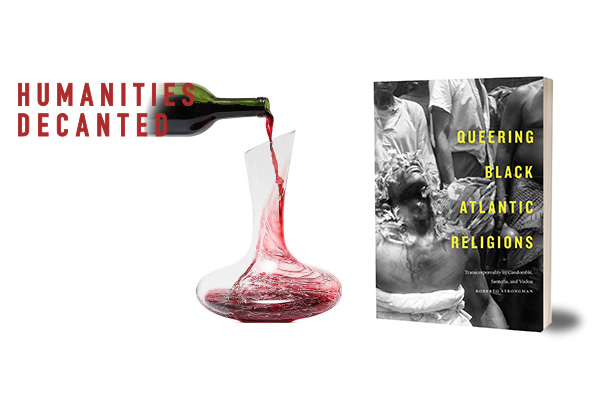
- This event has passed.
Humanities Decanted: Queering Black Atlantic Religions: Transcorporeality in Candomblé, Santería, and Vodou
January 30, 2020 @ 4:00 am - 5:30 am PST

In Queering Black Atlantic Religions, Roberto Strongman examines Haitian Vodou, Cuban Lucumí/Santería, and Brazilian Candomblé to demonstrate how religious rituals of trance possession allow humans to understand themselves as embodiments of the divine. In these rituals, the commingling of humans and the divine produces gender identities that are independent of biological sex. As opposed to the Cartesian view of the spirit as locked within the body, the body in Afro-diasporic religions is an open receptacle. Showing how trance possession is a primary aspect of almost all Afro-diasporic cultural production, Strongman articulates transcorporeality as a black, trans-Atlantic understanding of the human psyche, soul, and gender as multiple, removable, and external to the body.
Roberto Strongman is Associate Professor in the Department of Black Studies at UC Santa Barbara. Dr. Strongman’s interdisciplinary approach encompasses the fields of Religion, History, and Sexuality in order to further his main area of research and teaching: Comparative Caribbean Cultural Studies. His articles have appeared in Journal of Haitian Studies, Journal of Caribbean Studies, Journal of Caribbean Literatures, Callaloo, Kunapipi, Wadabagei, and the Journal of Latin American Cultural Studies.
Sponsored by the IHC’s Harry Girvetz Memorial Endowment


